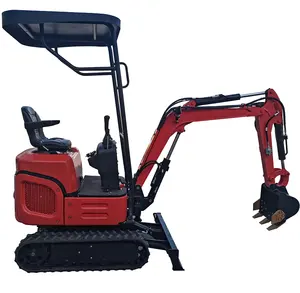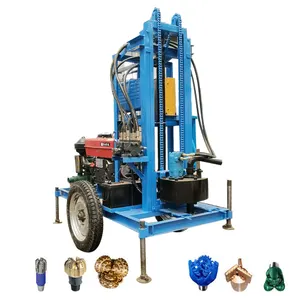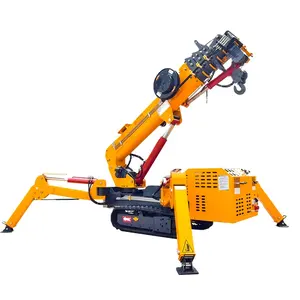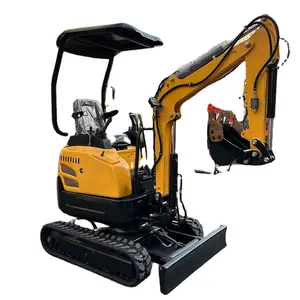Popular in your industry










Related Searches:



























Top categories
About concrete mixing station
Understanding Stationary Concrete Mixers
A Stationary Concrete Mixer is a robust and compact apparatus engineered for blending concrete and other building materials at construction sites. It is an intense mixer extensively employed in a variety of construction endeavors, both minor and major, offering an effective and dependable means to achieve a uniform mixture. As its name implies, this mixer is fixed in place and not designed for transportation to different work locations.
Construction firms, contractors, and concrete product manufacturers are the primary users of stationary concrete mixers, depending on them for a steady flow of high-quality concrete. These mixers are indispensable for construction professionals like builders, engineers, and concrete experts, who count on the stationary mixer's precision to concoct exact blends for a range of uses, including foundations, slabs, and walls.
The operation of a stationary concrete mixer is relatively simple. It amalgamates raw materials such as cement, sand, and gravel with water to create a concrete mix. The machine employs a stationary agitator (typically a spiral blade or paddle) that spins inside the drum to ensure thorough mixing of the components. Depending on the mixer's model and size, the mixing can be done in batches or continuously.
Designed with safety and efficiency at the forefront, the stationary nature of these mixers allows for a solid construction capable of enduring the demands of mixing weighty materials for prolonged periods. The components of the machine are generally crafted from hard-wearing materials that can resist the mechanical stresses and environmental rigors commonly encountered on construction sites.
Varieties of Stationary Concrete Mixers
Stationary concrete mixers are available in an array of designs and configurations to cater to the varied requirements of construction projects:
-
Twin Shaft Concrete Mixer: Characterized by two horizontal shafts with opposing rotating blades, this variant is celebrated for its superior mixing efficiency and is often chosen for producing large quantities of high-strength concrete.
-
Vertical Shaft Concrete Mixer: These mixers feature blades that revolve around a vertical axis and are typically employed for rapid mixing in precast concrete plants or for blending cements and mortars that necessitate a quick setting time.
-
Drum Mixer: Also referred to as a drum concrete mixer, this basic design utilizes a single drum for both the mixing and discharging of materials. It is commonly applied in small-scale projects like laying sidewalks or driveways.
-
Pan Mixer: With a resemblance to a shallow, circular drum, pan mixers execute both vertical and horizontal mixing actions. They are apt for mixing stiff concrete blends containing aggregate and are also used for blending refractory materials in certain industries.
Selecting a Stationary Concrete Mixer
When choosing a stationary concrete mixer for your enterprise on Alibaba.com, bear in mind several key considerations:
-
Batch Capacity: Assess the volume of concrete you need to generate. Stationary mixers are available in a spectrum of sizes and capacities; opt for one that aligns with your needs without overtaxing the machine.
-
Motor Power and Fuel Efficiency: Reflect on the most appropriate power source (electric, diesel, or gasoline) for your operational setting. Select a model that boasts robust motor power and excellent fuel efficiency, particularly if you expect regular usage or need to transport the mixer across vast distances.
-
Mixing Quality: As the ultimate objective is to produce superior concrete, ensure the mixer delivers reliable mixing performance. Seek out features like dual-shaft or planetary mixers, which provide comprehensive blending, crucial for concrete consistency.
-
Durability: The durability of the mixer is contingent on the materials used in its construction, such as steel. It is vital to choose equipment that can endure the challenges of your projects.
-
After-Sales Service: Given Alibaba.com's assortment of global suppliers, it is important to select a vendor capable of providing sufficient after-sales support, especially for international sourcing.
By weighing these factors alongside specific attributes like portability and the types of mixers on offer (such as belt conveyors or production lines), you can make a well-informed decision that suits your business's operational needs.
About Stationary Concrete Mixers on Alibaba.com
Alibaba.com distinguishes itself as a leading online marketplace that connects businesses with an extensive array of stationary concrete mixers from trusted suppliers worldwide. The platform's user-friendly interface enables buyers to pinpoint precisely what they need by filtering products based on criteria like local service location, core components, power type, and other pertinent details. This focused search functionality is especially advantageous for businesses aiming to procure equipment that satisfies specific industry standards or project demands.
Alibaba.com's Trade Assurance service ensures that businesses can place orders with peace of mind, knowing their payments are safeguarded until the delivery is confirmed. This commitment to secure transactions fosters trust between buyers and suppliers and underscores the platform's commitment to exemplary service and customer satisfaction. Furthermore, Alibaba.com's international scope allows businesses to tap into advanced mixing technologies from various regions, ensuring they remain competitive irrespective of their geographical location or scale.
The wide range of options on Alibaba.com renders it an invaluable tool for businesses in search of stationary concrete mixers that meet their operational requirements. Whether outfitting a construction crew with standard models or seeking specialized variants for unique projects, Alibaba.com provides an extensive selection without compromising on quality or reliability.
Common FAQs for Stationary Concrete Mixers
How does a stationary concrete mixer differ from a volumetric concrete mixer?
A stationary concrete mixer is designed to stay in one place and is utilized for large-scale concrete mixing, whereas a volumetric concrete mixer is a mobile unit that offers the versatility to move to various sites and mix different concrete types on-demand without a permanent setup.
How should I determine the appropriate capacity for a stationary concrete mixer?
The necessary capacity for a stationary concrete mixer hinges on the volume of concrete your business needs to produce. It's crucial to select a mixer that can manage your specific production demands, be it for smaller tasks or extensive operations.
Are stationary concrete mixers suitable for various concrete types?
Indeed, stationary concrete mixers can handle a range of concrete types, but choosing a mixer that is compatible with the particular concrete materials you plan to use is essential. For example, planetary mixers are more suited for lightweight concrete, while other concrete types like ready mix or precast may necessitate a different mixer style.
What considerations should I make regarding after-sales service when buying a stationary concrete mixer?
In purchasing a stationary concrete mixer, prioritize suppliers who offer comprehensive after-sales services, including video technical support, online assistance, and field maintenance and repair services, to guarantee continued support for your machinery.
How can I ensure my stationary concrete mixer complies with local regulations?
Prior to acquiring a stationary concrete mixer, confirm that it adheres to all local regulations and standards pertinent to your sector. This may encompass certifications, design specifications, and operational protocols.
Which power type is optimal for a stationary concrete mixer?
Select a power type that corresponds with your operation's power needs. Common choices include electric motors for indoor use and diesel engines for outdoor or heavy-duty applications.
Is it feasible to obtain a machinery test report for a stationary concrete mixer?
Certain suppliers do furnish machinery test reports for their stationary concrete mixers, providing validation of the equipment's quality and performance.
Why is material quality pivotal for a stationary concrete mixer?
The material quality is of paramount importance as it affects the mixer's durability and overall efficacy. Inferior materials may lead to more frequent maintenance, repairs, and potential safety hazards.
What are some typical core components of a stationary concrete mixer?
Typical core components of a stationary concrete mixer include motors, PLC systems, gearboxes, hydraulic systems, and pressure vessels. The caliber of these components influences the mixer's reliability and efficiency.
Can I tailor a stationary concrete mixer to my business's specific needs?
Many suppliers offer customization options for stationary concrete mixers to meet particular business needs, which can encompass alterations to color, size, material specifications, and functional features.
What does 'local service location' signify for stationary concrete mixers?
'Local service location' denotes the presence of local technicians or service centers capable of providing support for stationary concrete mixers within a certain geographic area. This is significant for businesses operating in remote areas or those in need of prompt service.













